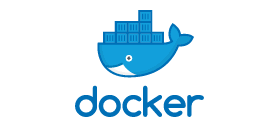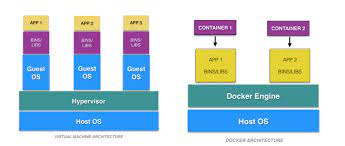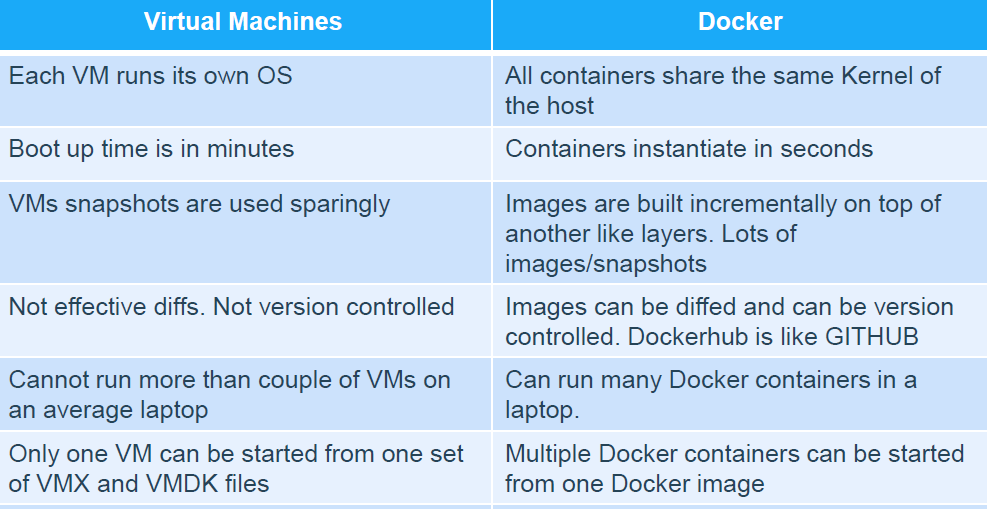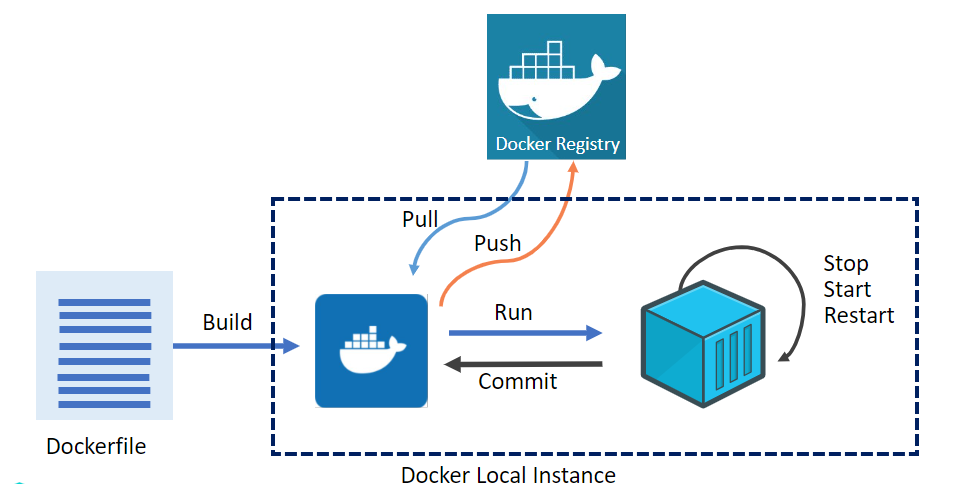Basic concept of Docker for Devops
 ashwini purwat
ashwini purwat
Introduction to Docker:
Docker is a very popular and powerful open-source containerization platform that is used for building, deploying, and running applications. Docker allows you to decouple the application/software from the underlying infrastructure.
What is a Container?
A container is a standard unit of software bundled with dependencies so that applications can be deployed fast and reliably b/w different computing platforms.
Docker can be visualized as a big ship (docker) carrying huge boxes of products (containers).
Docker container doesn’t require the installation of a separate operating system. Docker just relies or makes use of the kernel’s resources and its functionality to allocate them for the CPU and memory it relies on the kernel’s functionality and uses resource isolation for CPU and memory, and separate namespaces to isolate the application’s view of the OS (operating system).

Difference between Virtual Machine and Docker container

What is Docker ?
Docker is a containerization platform that provides easy way to containerize your applications, which means, using Docker you can build container images, run the images to create containers and also push these containers to container registries such as DockerHub, Quay.io and so on.
In simple words, you can understand as
containerization is a concept or technologyandDocker Implements Containerization.Explain Docker Architecture ?

The above picture, clearly indicates that Docker Deamon is brain of Docker. If Docker Deamon is killed, stops working for some reasons, Docker is brain dead.
Docker LifeCycle
We can use the above Image as reference to understand the lifecycle of Docker.
There are three important things,
docker build -> builds docker images from Dockerfile
docker run -> runs container from docker images
docker push -> push the container image to public/private registries to share the docker images.
docker pull -> pull the container images from public/private registries.

Terminology of Docker
Docker daemon
The Docker daemon (dockerd) listens for Docker API requests and manages Docker objects such as images, containers, networks, and volumes. A daemon can also communicate with other daemons to manage Docker services.
Docker Hub/Registry: Docker stores the images you build in registries. Docker Hub is a public registry service that anyone can use, and Docker is configured to look for images on Docker Hub by default. You can even run your own private registry using the Docker Registry product.
Dockerfile: To build an image, Docker uses instructions written in a Dockerfile. A Dockerfile is a text file that contains all the commands a user could call on the command line to assemble an image.
Images: Docker images are read-only templates used to build containers. They are the building blocks of the Docker world.
Subscribe to my newsletter
Read articles from ashwini purwat directly inside your inbox. Subscribe to the newsletter, and don't miss out.
Written by
